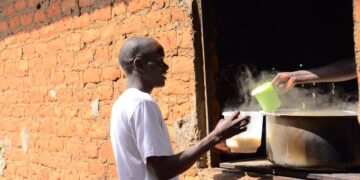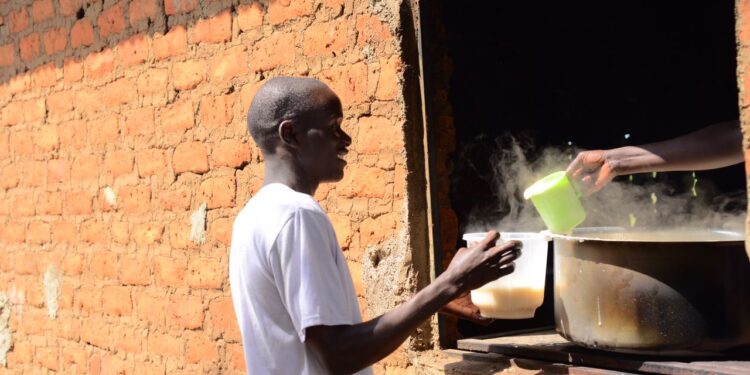A total of 26 institutions, including schools and a prison in the West Nile and Kiryandongo districts, have embraced alternative sustainable cooking energy.
With the introduction of Lorena stoves for both household and institutional use, the modified cooking technology has significantly reduced the amount of wood fuel used and lowered smoke emissions, which often cause respiratory issues.
According to Hamid Amin, the Headteacher of Barakala Seed Secondary School located in the Bidibidi Refugee settlement, the school previously spent UGX 2.1 million per term on firewood before switching to the Improved Institutional Cook stoves.
“Previously, it was costly for the school to provide meals to students. We spent UGX 2.1 million per term on firewood. Students who couldn’t afford school meals had to walk home for lunch, losing study time and ultimately affecting their academic performance. Now, with this advanced cooking technology, the school spends no more than UGX 350,000 on firewood per term. The improved stoves cook food faster and emit less smoke,” he said.
Before 2016, areas like Bidibidi had a dense green cover. However, the environment has deteriorated due to deforestation for charcoal production and construction by refugees and host communities.
The growing refugee population in Uganda has increased the reliance on natural resources by both refugee and host communities, leading to environmental degradation, reduced groundwater recharge, and decreased food and nutrition security.
Albert Okwai, the Project Officer for Save the Children, stated that funding from the European Union Emergency Trust Fund for Africa aims to increase environmental protection, forest restoration, and the sustainable use of alternative energy sources by displaced refugee and host communities.
The European Union Emergency Trust Fund for Africa has donated over EUR 540 million in development and humanitarian assistance to the national refugee response over the last eight years, benefiting both refugees and host communities.
Okwai mentioned that some of the funds were used to build 11 stoves to protect the environment, improve cooks’ health, and ensure students do not waste time getting their meals.
“We have installed 11 cooking stoves in Yumbe, 6 in Adjumani, 3 in Terego, 2 in Madi Okollo, and 5 in schools in Kiryandongo district. These stoves will help conserve trees that would otherwise be cut down, as we aim to reduce the reliance on natural trees for at least 44,000 households,” Okwai said.









